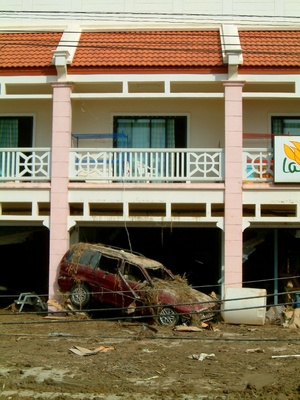
Getting water inside your car engine, due to driving in extreme conditions or suffering from flooding, provides a bad recipe for disaster. Particularly if the vehicle has been submerged for any period of time, water can work its way into much of the engine system.
The most immediate signs of engine damage from water exposure will likely be found in the engine oil and transmission fluid. By just checking the fluids with a dipstick you can see if there has been exposure. Water will make the transmission fluid look milky in consistency. Water in the oil pan will also dilute the engine oil as well.
Water damage can affect the lubrication system and electrical wiring. As the engine parts malfunction odd and loud noises will likely be heard after a car engine has been exposed. The noise can come from the alternator, the belts, or the air conditioner among a number of possibilities.
The best approach with engine water exposure involves not starting the car at all. Instead, the car should be towed to the nearest mechanic to be looked over first. Trying to start the car if there is water inside will likely contribute to serious damage as lubrication may fail and engine parts may grind.